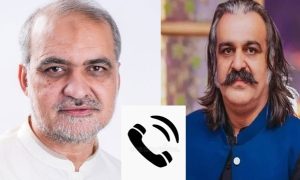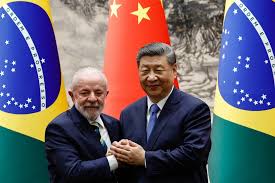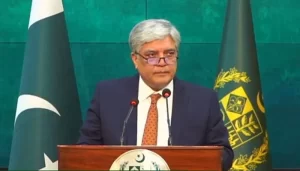Bilawal Bhutto terms Indus Water Treaty suspension ‘crime against humanity’

Liaquat Ali
Islamabad: Pakistan People’s Party (PPP) Chairman Bilawal Bhutto-Zardari on Tuesday termed the suspension of the Indus Water Treaty by India as a “crime against humanity.”
Speaking in the National Assembly following India’s accusations against Pakistan over the recent Pahalgam incident — which Islamabad has dismissed as a “false flag operation” — Mr Bhutto-Zardari strongly condemned what he called India’s “irresponsible conduct” and urged the international community to take note.
“The Indus Water Treaty is not just a bilateral agreement; it is a lifeline for millions. Threatening food security and livelihoods for political point-scoring is not just short-sighted—it is inhumane,” said the former foreign minister.
The PPP chairman said that India was attempting to punish Pakistan for a crime “that occurred within its own borders” and for which no credible evidence has been presented.
India, he argued, was acting with impunity by shutting borders, issuing threats, and blaming Pakistan before the blood of the victims had even dried.
“We are not exporters of terrorism. We are its victims,” Mr Bhutto-Zardari said, reminding lawmakers that Pakistan had paid a heavy price in its war against terror, burying schoolchildren and soldiers alike.
He described terrorism not just as a physical attack but as a “violent assault on truth, peace, and civilisation.” He said global silence in the face of rising injustice also constituted a form of terrorism.
“Turning homes into rubble with bulldozers, imposing indefinite curfews, and gagging an entire population are all forms of state-sponsored terror,” he said, referring to India’s actions in Indian-occupied Kashmir (IoK).
In a scathing indictment of Indian policy in Kashmir, the PPP chairman accused New Delhi of hypocrisy: “How can a state that commits daily violations in the occupied valley claim to fight terrorism? When your hands are stained with the tears of Kashmiri mothers, the cries of orphaned children, and the silence of lifeless men, moral superiority cannot be claimed.”
He said Pakistan had long borne the brunt of externally funded ideological terrorism, often standing alone with its wounds ignored by the international community.
Mr Bhutto-Zardari asserted that tanks and bullets would not defeat terrorism; only justice, hope, and political solutions could root it out.
“If India wants peace in Kashmir, it must stop viewing dissent as a threat. Let the people speak. Give them the vote, not vengeance. Stabilise, don’t demolish. Empower, don’t suppress,” he said, adding that Kashmir remains an “unhealed wound” and a “broken promise.”
Referring to Indian spy Kulbhushan Jadhav, who was arrested in Balochistan in 2016, Mr Bhutto-Zardari said India’s attempt to portray itself as the region’s victim was a “narrative divorced from ground realities.”
“India has not only sponsored proxies, but its own armed forces have been directly involved in terrorist acts not just in Pakistan, but in countries like Sri Lanka and Canada,” he claimed, urging New Delhi to abandon its foreign policy of aggression.
He also questioned India’s unwillingness to accept Prime Minister Shehbaz Sharif’s offer of an independent and transparent investigation into the Pahalgam incident.
“Why would the ‘real victim’ of terrorism shy away from accountability?” Mr Bhutto-Zardari asked. “Perhaps because the trail of terror leads not to Islamabad but to New Delhi.”
The PPP chairman warned that unless both countries engage sincerely to root out terrorism from the region, future generations would also be condemned to inherit the same instability.
He concluded by reiterating that suspending the Indus Water Treaty was not merely an act against Pakistan but a transgression against humanity and nature.
“It is not punishment—it is madness,” he said. “To weaponise water is to gamble with the survival of millions. It is a crime against the Earth itself.”





